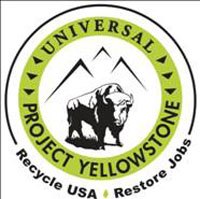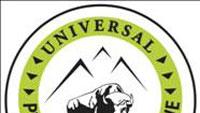Yellowstone National Park turns plastic bottles into artificial turf

Yellowstone National Park is working with Dalton, Ga.-based Universal Textile Technologies to recycle plastic bottles generated by the park’s 3.5 million annual visitors. Universal Textile is buying the recyclable plastic bottles that Yellowstone visitors discard each year and converting them into material used to manufacture carpet and synthetic turf products.
Until now, most of the plastics collected in Yellowstone were sold and shipped overseas, where they were used to produce plastic products that were later sold back to the U.S. Yellowstone is located primarily in Wyoming, though it also extends into Montana and Idaho.
Two of the goals of the recycling partnership are reducing the amount of plastic bottles sent to landfills, and helping Yellowstone meet its recycling targets while protecting and creating U.S. jobs.
“Yellowstone was created as the world’s first national park in 1872,” says Jim Evanoff, an environmental protection specialist with Yellowstone National Park. “We have an obligation to set the example for promoting sound environmental stewardship practices that will serve as a model for future generations. This new partnership not only diverts plastics from landfills, it dramatically decreases the fuel and other resources used to transport materials around the planet.”
Universal Textile Technologies is converting the plastic bottles into a nonwoven fleece material used to manufacture BioCel and EnviroCel sustainable backings for carpet and synthetic turf. BioCel and EnviroCel use Celceram, a refined material recovered from coal combustion in electric utility power plants that is then combined with soybean-based polyols derived from domestically grown soybeans. The backings are certified under the U.S. Green Building Council’s Leadership in Energy and Environmental Design (LEED) program. They are moisture-resistant, insulate against energy loss, reduce ambient noise and strengthen the structural integrity of carpet and synthetic turf, according to the company.
Other members of the partnership are Four Corners Recycling; CPE, Inc.; and the United Soybean Board (USB). USB helped forge the partnership through its relationships with both Universal and Yellowstone National Park. The Atlanta-based Georgia Tech Research Institute has provided third-party verification for the recycling effort.
Universal Textile Technologies supplies the carpet industry with multiple backing systems that are used in mid- to high-traffic commercial, hospitality, residential, corporate, healthcare, education and lodging markets. Its products also are used to produce synthetic turf for sports fields and synthetic grass for landscape applications.




















